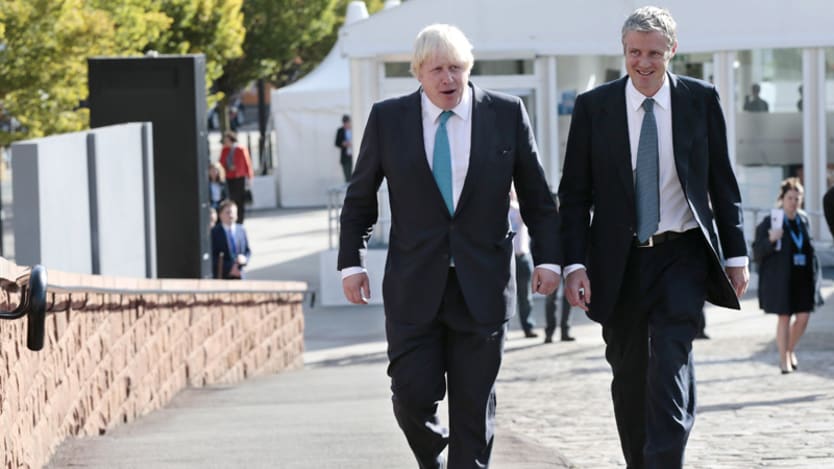What does the increase in joint ministers mean for DFID? Experts weigh in

LONDON — As the dust settles in Westminster after last week’s leadership change, the U.K. Department for International Development is still standing but has undergone a major ministerial overhaul — including the appointment of its first-ever joint minister with the Department for Environment, Food & Rural Affairs, meaning that three out of DFID’s five ministers now work jointly with another department.
Britain’s new Prime Minister Boris Johnson opted to keep DFID as a standalone department when he assembled his cabinet last week, appointing Alok Sharma as the new secretary of state. Many had feared Johnson would move to merge DFID back into the Foreign & Commonwealth Office, something he has threatened in the past. However, the department and its budget are not safe yet, experts have warned.
Catch up on DFID news:
► DFID says contractor reforms are working, suppliers beg to differ
► DFID and UK aid still under threat, experts warn
► DFID headed toward centralization despite its leader's concerns
DFID has shared two of its junior ministers with the Foreign & Commonwealth since 2017, but this is the first time a minister — Richmond Park MP Zac Goldsmith — has worked across Defra and DFID.
While the number of joint ministers has been increasing across government in recent years, it is unusual for a department to have more joint than sole ministers, according to Gavin Freeguard from the Institute for Government.
Little is known about what Goldsmith’s role will entail — DFID declined to provide further details when asked by Devex but said his portfolio would be announced on the government website shortly.
Some aid insiders said they hoped it will lead to greater joint development, climate change, and biodiversity programming across government — something Rory Stewart pushed for during his brief tenure as DFID chief.
“It’s common to hear talk about ‘integration’ but, regrettably, much rarer to that put into practice. Therefore, the creation of a joint post at DFID and Defra really should be welcomed …[it is] good news for those of us working on cross-sectoral projects and policy,” said David Johnson, chief executive of the Margaret Pyke Trust, which has been campaigning on the benefits of combined reproductive health, biodiversity, and climate change programming.
However, others warned that the increasing use of joint ministers could dilute DFID’s poverty focus, especially in the context of the cross-government aid strategy, which has seen more of the U.K. ODA budget handed over to other departments.
Claire Godfrey, head of policy and campaigns at Bond, the U.K. network of NGOs, said that more DFID joint ministers could in theory, improve cross-government ODA spending — but it could also have the opposite effect.
“The worst case scenario would be that we see ... ODA becomes diluted and the objectives distorted towards meeting the objectives of other government departments rather than working to help the world’s poorest and most marginalised people,” Godfrey told Devex over email.
Others questioned the ability of junior ministers to effectively oversee such wide-ranging briefs.
“In general, I’m in favor of ministers having a seat in both departments … [and] working together … It’s a good idea but [not if they are] trying to do completely unrelated jobs,” argued Simon Maxwell, senior research associate and former director at the Overseas Development Institute, who added there was a risk of ministers being “overloaded.”
Two of DFID’s existing junior ministers survived Johnson’s reshuffle — Baroness Sugg and Andrew Murrison, who are both relative newcomers to the department. Harriett Baldwin — until last week the department’s longest-standing minister, having served 18 months — was replaced by Andrew Stephenson, MP for Pendle, as joint minister for DFID and FCO.
Murrison, who has stayed on as a joint DFID-FCO minister, is responsible within DFID for the Middle East and North Africa, human development, humanitarian work, conflict and security, and global funds, as well as the controversial cross-government Conflict, Stability and Security Fund. This is on top of an equally challenging FCO portfolio, Maxwell pointed out.
Simon Gill, ODI’s acting executive director, said the increase in DFID’s joint minister was significant and may improve the perception of aid with voters.
“Public support for aid has come under pressure in the last decade … Making linkages between [the aid budget] and the issues people care about domestically and internationally, and migration and climate are two examples of those … is really important,” Gill said.
Search for articles
Most Read
- 1
- 2
- 3
- 4
- 5


